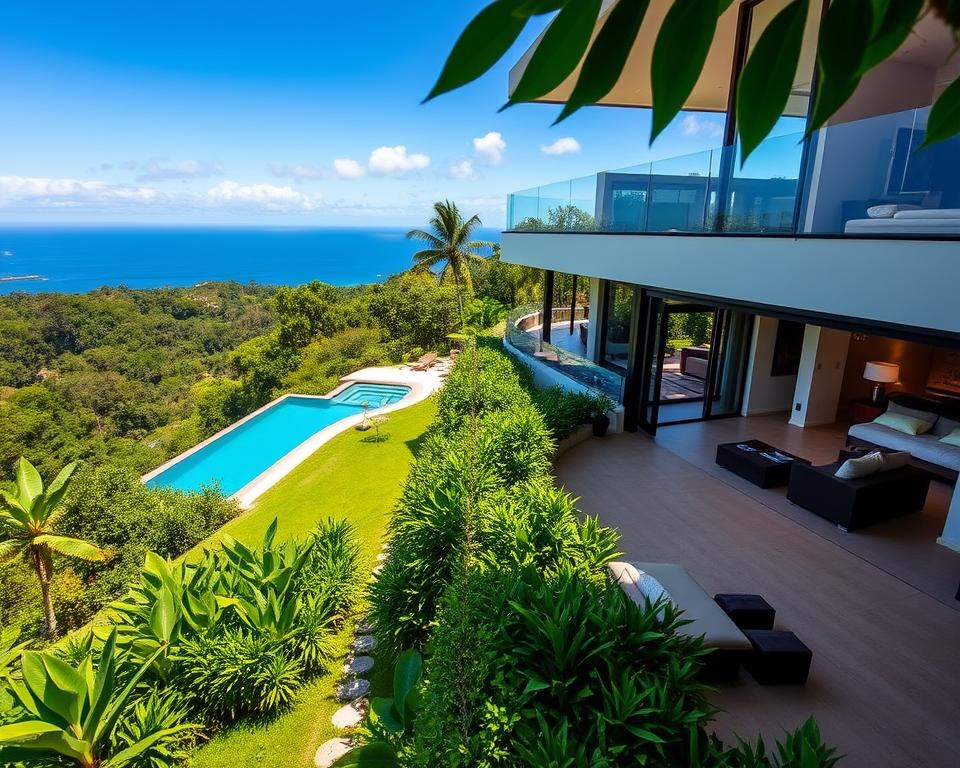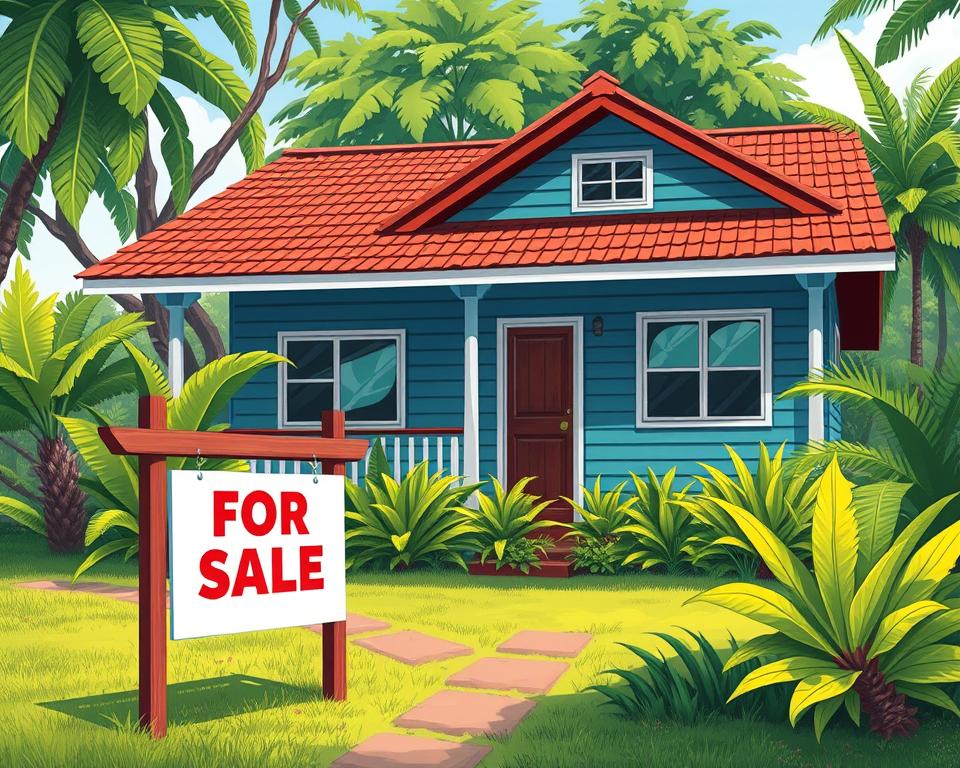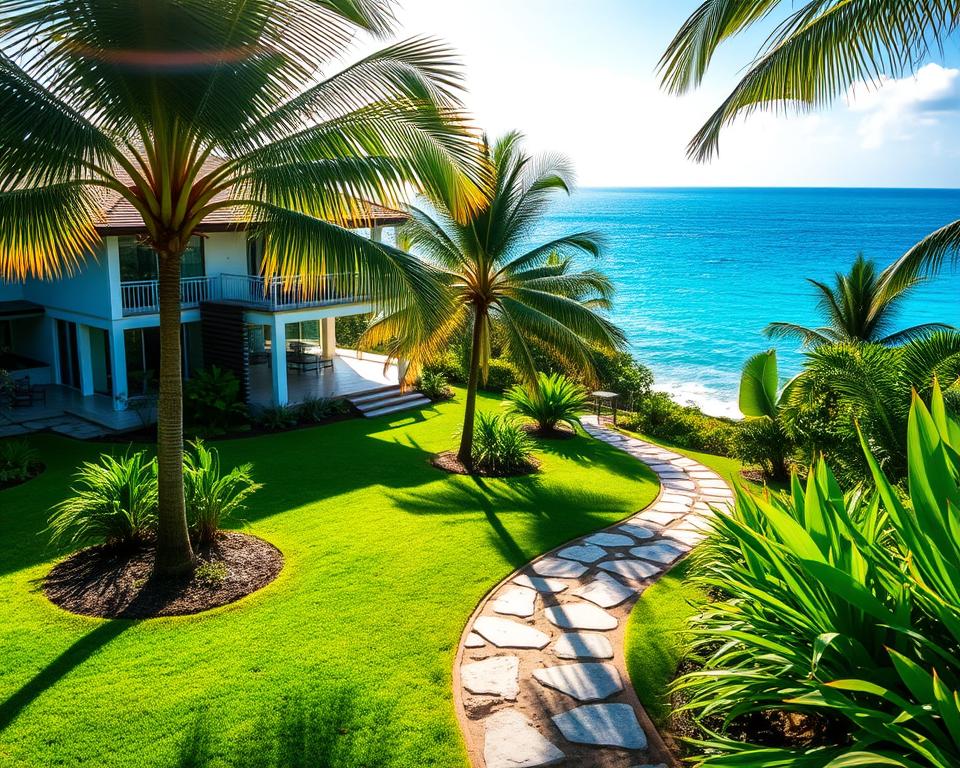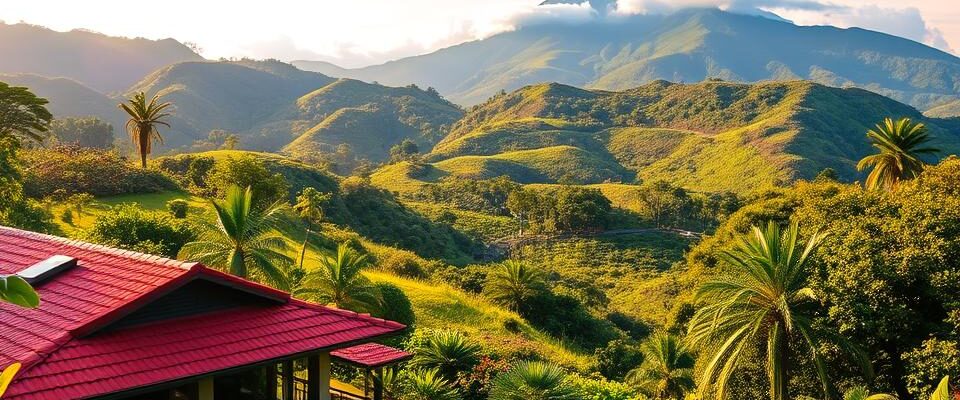Home Selling Checklists and Guides in Costa Rica by Gap
At Gap Real Estate, we simplify the process of buying, selling, or investing in Costa Rica with over two decades of coast-to-coast experience. Our team delivers seamless transactions through expert guidance, clear communication, and relentless dedication to your goals.
Costa Rica, known for its stunning beaches and lush rainforests, is a sought-after destination for property buyers worldwide. However, selling real estate in this tropical paradise comes with unique challenges and nuances, requiring specialized knowledge of local market dynamics, legal requirements, and cultural considerations.
Our comprehensive guides are designed to walk you through every step of the selling process, from initial preparation to final closing. With the right guidance, selling your property can be a smooth and profitable experience, avoiding common pitfalls that often trap foreign sellers.
Why Costa Rica’s Real Estate Market Requires Expert Guidance
Navigating Costa Rica’s real estate market can be challenging due to its unique legal and cultural landscape. The country’s property market operates under different legal frameworks and cultural expectations than those in North America or Europe, making it essential to have specialized knowledge to navigate it successfully.
Understanding the Unique Costa Rican Property Market
Costa Rica’s real estate market is influenced by its environmental policies and foreign ownership laws, creating a complex landscape for property sellers. The country’s high value on environmental protection means that any property transaction may involve addressing environmental impacts or conservation efforts. Furthermore, foreign ownership laws and property registration processes add layers of complexity that can be challenging to navigate without expert guidance.
- The seasonal nature of Costa Rica’s real estate market, with more activity during the dry season, requires strategic timing and marketing approaches.
- Foreign ownership laws and property registration processes create a complex landscape that can be challenging without expert guidance.
- Tax implications for property sellers in Costa Rica necessitate professional advice to ensure compliance and optimal financial planning.
Gap Real Estate: Your Trusted Partner with 20+ Years of Expertise
At Gap Real Estate, we bring over two decades of coast-to-coast experience in Costa Rica’s real estate market, having successfully guided hundreds of sellers through the unique challenges of the market. Our team’s deep understanding of regional differences within Costa Rica allows us to provide tailored advice for properties in diverse locations. We maintain strong relationships with legal experts, tax professionals, and service providers throughout Costa Rica, creating a comprehensive support network for our clients. By choosing Gap Real Estate, you gain a trusted partner dedicated to making your property sale successful. Learn more about our zero-cost listing option.
Essential Pre-Listing Checklist for Costa Rica Property Sellers
To ensure a smooth transaction when selling your Costa Rica property, gathering essential documents and financial records is vital. This preparation not only streamlines the selling process but also enhances your property’s appeal to potential buyers.
Property Documentation You’ll Need to Gather
Gathering the necessary property documentation is a critical step in preparing your Costa Rica property for sale. This includes your property title (escritura), cadastral survey (plano catastrado), and property tax receipts, which demonstrate clear ownership and compliance. If your property is held in a Costa Rican corporation, ensure that corporate books are up to date and annual corporate taxes are paid.
- Compile construction permits, building plans, and modification approvals to assure buyers of the property’s legal compliance and structural integrity.
- Gather documentation about water rights, concessions (for beachfront properties), and environmental permits relevant to your property’s value and transferability.
- Create a detailed inventory of furnishings and equipment included in the sale, clearly identifying any excluded items to prevent misunderstandings.
Financial Preparations Before Listing
Financial preparations are equally important when listing your Costa Rica property. Prepare financial records, including utility payment histories, property tax receipts, and HOA payment confirmations, to demonstrate that the property has been well-maintained and has no outstanding debts.
- Calculate potential capital gains tax implications with your accountant before listing, as Costa Rica’s tax laws for property sales have evolved.
- If your property has a rental history, organize income statements and occupancy rates, as these can be valuable selling points for investment-minded buyers.
- Verify that all relevant taxes are current, including luxury tax (if applicable) and property tax.
By meticulously gathering property documentation and preparing financially, you’ll be well-equipped to navigate the Costa Rica real estate market with confidence.
Pricing Your Costa Rican Property Strategically
In Costa Rica’s dynamic real estate landscape, setting the right price for your property is essential. Many properties in the country are overpriced, leading to prolonged market presence and potentially lowering the final sale price. To avoid this, it’s crucial to understand the local market conditions and price your property competitively.

Market Research and Comparative Analysis
Conducting thorough market research is vital. This involves analyzing recently sold properties with similar characteristics in your area. Prices can vary significantly across different regions of Costa Rica, so a localized comparative analysis is necessary. For instance, properties with ocean views or proximity to amenities tend to command higher prices.
Setting a Competitive Price with Room for Negotiation
When setting your asking price, consider including a negotiation margin of 5-10%. Costa Rican buyers typically expect some flexibility in the final price. A reputable local real estate agent can provide valuable insights into current market conditions and help you determine a competitive price.
Considering Seller Financing Options
Offering seller financing can expand your buyer pool, particularly for foreign buyers who may face challenges securing traditional financing in Costa Rica. It’s essential to discuss with your attorney the various ways to secure your interest, such as mortgage guarantees or fideicomiso arrangements.
Additionally, understanding how currency fluctuations between the US dollar and the Costa Rican colón might impact your pricing strategy is crucial. Seasonal timing also plays a role, as demand tends to peak during the North American winter months when more potential buyers visit Costa Rica.
Property Preparation Checklist: Making Your Home Irresistible
To stand out in Costa Rica’s vibrant property market, it’s essential to make your home irresistible to buyers. First impressions matter significantly, especially in a competitive real estate market like Costa Rica’s. Ensuring your property is well-maintained and visually appealing can make a substantial difference in attracting potential buyers.
Interior Staging and Decluttering Tips
Decluttering and depersonalizing your space is crucial. Remove excess furniture, personal items, and photos to create a neutral canvas that allows potential buyers to envision themselves living in the property. Neutralizing odors is also important, as many buyers are sensitive to smells that can be a deal-breaker. Finish any unfinished projects to present a move-in-ready property.
- Remove excess furniture to make spaces look larger.
- Depersonalize by taking down personal photos and items.
- Neutralize any lingering odors from pets, cooking, or smoke.
Enhancing Curb Appeal and Outdoor Spaces
Enhancing your property’s curb appeal is vital in showcasing the indoor/outdoor lifestyle that attracts buyers to tropical living in Costa Rica. Maintain lush landscaping, ensure tropical gardens are well-tended, and highlight outdoor living spaces.
- Maintain lush and well-tended landscaping.
- Highlight outdoor living spaces that showcase Costa Rica’s year-round outdoor lifestyle.
- Ensure all outdoor areas are clean and inviting.

Addressing Repairs and Maintenance Issues
Addressing maintenance issues relevant to Costa Rica’s tropical climate is critical. Check for water damage, mold, or pest issues that can be red flags for foreign buyers. Ensure all water systems function properly, including checking water pressure and ensuring water tanks and pumps are in good working order.
- Check for and address any water damage or issues.
- Ensure all water systems are functioning properly.
- Consider a pre-listing home inspection to identify potential issues.
By following these tips and checklists, you can significantly enhance your property’s appeal to potential buyers in Costa Rica’s competitive real estate market.
Comprehensive Home Selling Checklists and Guides in Costa Rica

Costa Rica’s unique real estate market demands a thorough approach to home selling, including detailed checklists and guides. When selling a property in Costa Rica, it’s crucial to be prepared with the necessary documentation and information to ensure a smooth transaction.
Our comprehensive home selling checklists are designed to help you navigate the process with ease. These checklists include detailed documentation requirements specific to Costa Rica, ensuring you’re fully prepared for a successful sale.
Legal Documentation Checklist
A critical component of selling your home in Costa Rica is having the right legal documentation in place. This includes:
- Property deeds and titles
- Property surveys and maps
- Certificates of registration
- Any outstanding mortgages or liens
Ensuring you have all the necessary legal documents will help prevent delays in the closing process.
Property Information List for Buyers
Providing potential buyers with a comprehensive property information list can facilitate a smooth transition of ownership. This list should include:
- Locations of critical components like water main valves and electrical panels
- Maintenance history of the property, including septic tank cleaning and roof repairs
- A detailed inventory of items included in the sale
- Contact information for service providers familiar with the property
By providing this information, you can help build trust with potential buyers and ensure a successful sale.
Marketing Your Property Effectively in Costa Rica
Effective property marketing in Costa Rica involves understanding the local and international buyer markets. At Gap Real Estate, we deliver seamless transactions through expert guidance, clear communication, and relentless dedication to your goals.

Professional Photography and Virtual Tours
Investing in professional photography is crucial to showcase your Costa Rican property’s best features. We recommend using high-quality photos and videos, including drone footage, for larger properties or those with impressive views.
Creating virtual tours and 3D walkthroughs allows potential international buyers to experience your property remotely, which is an essential tool for reaching foreign purchasers.
Online and International Marketing Strategies
To effectively market your property in Costa Rica, we utilize specialized international real estate platforms that cater to buyers interested in Costa Rican properties. We also develop bilingual marketing materials to appeal to both local and international markets.
Our targeted social media campaigns showcase not just your property but the lifestyle and investment potential of its specific region within Costa Rica.
Leveraging Gap’s Coast-to-Coast Network
By partnering with Gap Real Estate, you gain access to our coast-to-coast network of agents, investors, and property seekers throughout Costa Rica. This maximizes exposure to qualified potential buyers and ensures a stress-free experience.
We also consider hosting virtual open houses timed for potential buyers in different time zones, particularly during peak interest seasons.
Managing Property Showings and Negotiations
In Costa Rica’s competitive property market, mastering showings and negotiations can make all the difference. As you prepare to sell your property, understanding how to manage these processes effectively is crucial for attracting serious buyers and securing a favorable sale.
Preparing for Viewings and Open Houses
To maximize the impact of property showings, it’s essential to be flexible and accommodating. Many potential buyers in Costa Rica are on vacation and may request last-minute viewings. We recommend creating a showing protocol that includes virtual tours for initial screenings and allows for flexibility in scheduling in-person visits. Additionally, developing bilingual property information sheets can help address common questions and highlight key selling points.
Handling Offers and Counteroffers
Understanding cultural differences in negotiation styles is vital when dealing with international buyers. Expectations and approaches can vary significantly between North American, European, and Latin American purchasers. Being aware of these differences can help you navigate negotiations more effectively. It’s also important to prepare for common negotiation points specific to Costa Rican properties, such as furniture inclusion and utility deposit transfers.
Negotiation Strategies for International Buyers
When dealing with international buyers, consider the impact of currency exchange fluctuations on negotiations. Developing strategies for managing multiple offers in high-demand areas is also crucial. Furthermore, creating a clear process for handling due diligence requests and property inspections can help accommodate the needs of international buyers with limited time in the country.
Understanding the Closing Process in Costa Rica
Navigating the closing process in Costa Rica can be complex, but with the right guidance, it can be a smooth experience. The process involves several key steps, from the due diligence period to the final transfer of ownership.
Due Diligence Period: What to Expect
The due diligence period in Costa Rica typically lasts 21-30 days after the buyer places a 10% deposit in escrow. During this time, the buyer conducts various inspections and reviews the property documentation.
- Prepare all necessary property documentation, including title documents, tax receipts, and utility bills.
- Understand that home inspections may focus on issues specific to tropical environments, such as water intrusion and termite damage.
- Be prepared to negotiate repairs or price adjustments if issues arise during inspections.
Closing Day Preparations and Requirements
As closing day approaches, ensure that the property is vacated, cleaned, and all agreed-upon items remain in place. All keys, remote controls, and access codes should be organized and labeled for the new owner.
- If you cannot be present for closing, arrange for a valid Power of Attorney that meets Costa Rican legal requirements.
- The closing timeline in Costa Rica typically ranges from 30-45 days after offer acceptance.
Post-Closing Tasks and Responsibilities
After the sale is complete, several tasks remain, including canceling utilities and transferring service contracts.
- Provide the new owner with a comprehensive property information list.
- Ensure that any held-back funds are released correctly in accordance with the sale agreement.
By understanding the closing process in Costa Rica and preparing accordingly, you can ensure a successful transaction.
Seller’s Cost Guide: Expenses to Anticipate
To navigate the Costa Rican real estate market successfully, sellers must be aware of the various expenses involved in the selling process.
Commission and Legal Fees
In Costa Rica, the standard real estate commission is typically 6% plus 13% IVA (sales tax) of the purchase price, usually split between the buyer’s and seller’s agents. For specialty properties, this rate may vary. Additionally, sellers should budget for legal representation during the sale process, with attorney fees varying based on transaction complexity and property value.
Tax Implications
Sellers must familiarize themselves with potential capital gains tax implications, as Costa Rica has implemented new regulations affecting property sales. Different rates apply depending on when the property was acquired. Understanding these tax implications is crucial for sellers to anticipate their financial obligations.
Prorations and Outstanding Payments
At closing, sellers should plan for prorated expenses, including property taxes, HOA fees, utility bills, and maintenance contracts calculated through the closing date. Sellers should also be aware of potential holdback amounts that may be placed in escrow to cover undiscovered liabilities or adjustments.
- Understand the standard real estate commission structure in Costa Rica.
- Budget for legal representation during the sale process.
- Familiarize yourself with potential capital gains tax implications.
Conclusion: Simplifying Your Costa Rica Property Sale with Gap
With over two decades of experience in Costa Rica’s real estate market, Gap Real Estate is your trusted partner for a seamless property sale. Our comprehensive approach addresses every aspect of your sale, from initial property preparation and pricing to marketing, negotiation, and final closing, ensuring no detail is overlooked.
We understand that selling real estate in Costa Rica often represents a significant life transition, whether you’re relocating, downsizing, or realizing an investment. Our bilingual team bridges communication gaps that often complicate international real estate transactions, ensuring a clear understanding between you and potential buyers. By leveraging our extensive network of qualified buyers, both within Costa Rica and internationally, we connect your property with the right purchasers who appreciate its true value.
At Gap Real Estate, we simplify buying, selling, or investing in Costa Rica. Our commitment doesn’t end at closing—we provide support through post-sale transitions, helping with utility transfers, property management recommendations, and other practical considerations. To begin your successful property selling journey with Costa Rica’s most trusted real estate partner, contact us today at +(506)-4001-6413 or [email protected].




